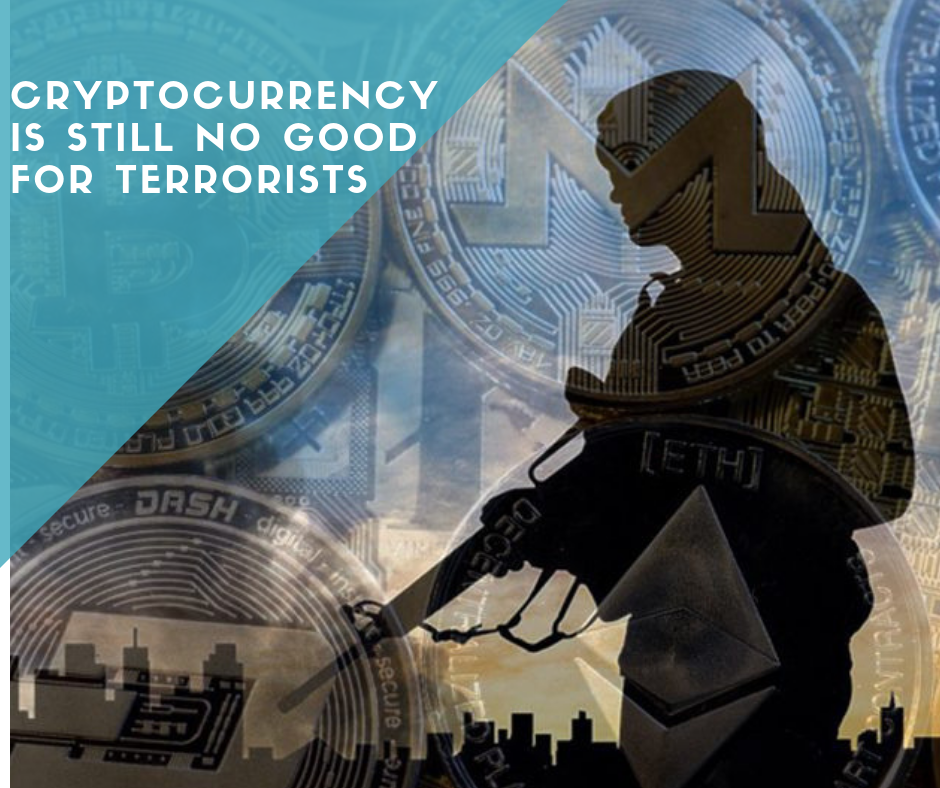US Congressional Hearing Reveals Cryptocurrency Is Still Inefficient For Terrorism
Ever since the emergence of the cryptocurrency market, there have been huge concerns related to its usage and it is the potential link to illegal activities. The Cryptocurrency critics have always pointed out the risk of the digital assets becoming a means of criminals doing several kinds of illicit actions. The main but not single reason for those concerns originates in the fact that transactions made with cryptocurrencies have been considered untraceable. However, this is not entirely true. All transactions and their history are recorded and available publicly on the blockchain.
What is more appealing for criminals is the anonymity or rather its pseudo-anonymity. It all comes down to the circumstance that the addresses used for the transactions are not linked to a specific person’s actual identity, but still, they act as an indicator or pseudonym. Although there are some indirect ways to trace the transactions to a user, it is also considered that there are ways to increase privacy and anonymity. The solicitudes related to cryptocurrencies facilitating criminals also extends to fear of them aiding terrorist acts.

On Sept 7, the director of analysis for the Foundation for Defense of Democracies Center on Sanctions and Illicit Finance, Yaya Fanusie, has pointed out that cryptocurrencies are not as useful for terrorists as physical cash is, in his statement for the House Financial Services Committee. Terrorists are trying to adjust to the new opportunities that cryptocurrencies may present and they are definitely on their radar.
The US defense expert asserted that although the cryptocurrency market poses a threat as it may be appealing for terrorists as a payment method or another form of exploitation, cryptocurrency is still “poor form of money” for them. The interest in the digital currencies by jihadists is increasing due to the pseudonymity and suitability of those assets for cybercrimes, and darknet market transactions. So, Fanusie acknowledged the need for preparation and precautions now to limit the possible usage of cryptocurrencies by terrorists in the future (by enforcing regulations for crypto exchanges for example). He further stated that terrorist organizations do not have the technology infrastructure, skills, and know-how to use cryptocurrencies effectively. Lacking the expertise and having the unreliable tech environment may lead to jihadist users unknowingly leaving a trail of illicit transactions better detectable than fiat money transfers, which points to the conclusion that cash is still more popular when it comes to financing terrorists. Moreover, Yaya J Fanusie pointed out that the blockchain technology is hardly user-friendly, while everyone knows how to use cash.
There have been several attempts by Al Qaeda and the Islamic State for fundraising through digital assets, which have failed so far, as reported by Yaya Fanusie. An example being the endeavor of a terror group known as Mujahideen Shura Council (MSC) in the Environs of Jerusalem, to raise funds for the so-called “Jahezona” campaign in 2016. Its target was to raise $2,500 per fighter, giving a Bitcoin payment option but resulted in just a little over $500 gain.
Another example is the campaign from the pro-Islamic State website Akhbar al-Muslimeen (Arabic for “News of the Muslims”), which posted a link for bitcoin donations in 2017. Nevertheless, the link was removed soon after.
In 2017, there was a crowdfunding campaign in Syria requesting Bitcoin funding using social media channels. The campaign was called al-Sadaqa and was associated with al-Qaeda and received about $ 685 worth of Bitcoin.
Despite those unfruitful efforts, Fanusie expressed a warning that the cryptocurrency adoption from terrorists is likely to mirror that of the general public. He added terrorist adaptability might be a risk, but it is not that imminent, and it does not mean the technology should be feared. These are his suggestions of actions to be undertaken to reduce the risks:
- Blockchain analysis education and adoption of US government agencies
- Increased engagement between US financial regulators and cryptocurrency exchanges.
- Enthusiasts should flag illicit addresses or suspicious activity.
The whole text of the congressional testimony by Yaya Fanusie can be found here: